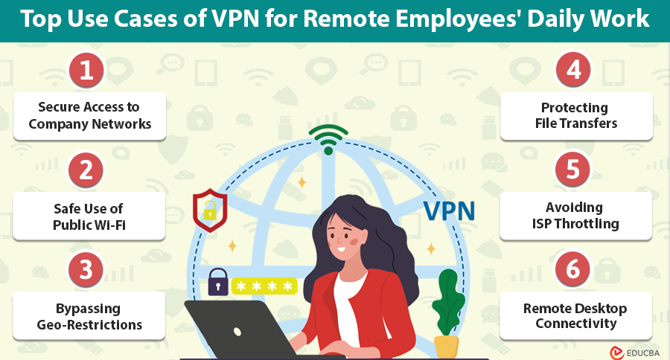Educba
4w
35

Image Credit: Educba
Use Cases of VPN for Remote Employees
- Remote work is a common practice, and VPNs play a crucial role in ensuring connectivity and security for remote employees.
- VPNs provide secure access to company networks, allowing remote staff to connect to internal systems securely.
- They enable safe usage of public Wi-Fi, protecting data from potential cyberattacks by encrypting transmissions.
- By bypassing geo-restrictions, VPNs help remote employees access region-specific content for their work.
- VPN encryption protects file transfers, ensuring data security during file exchanges among remote workers.
- Using a VPN can help avoid ISP throttling, ensuring consistent internet performance for various tasks.
- VPNs enhance Remote Desktop Protocol (RDP) safety by adding an encrypted layer to remote desktop sessions.
- They allow secure access to cloud services, aiding remote teams in securely connecting to essential cloud platforms.
- VPNs maintain privacy during online research and aid in compliance with data protection regulations like GDPR and HIPAA.
- For global teams, VPNs enable secure collaboration across different regions, ensuring seamless access to shared resources.
Read Full Article
2 Likes
For uninterrupted reading, download the app